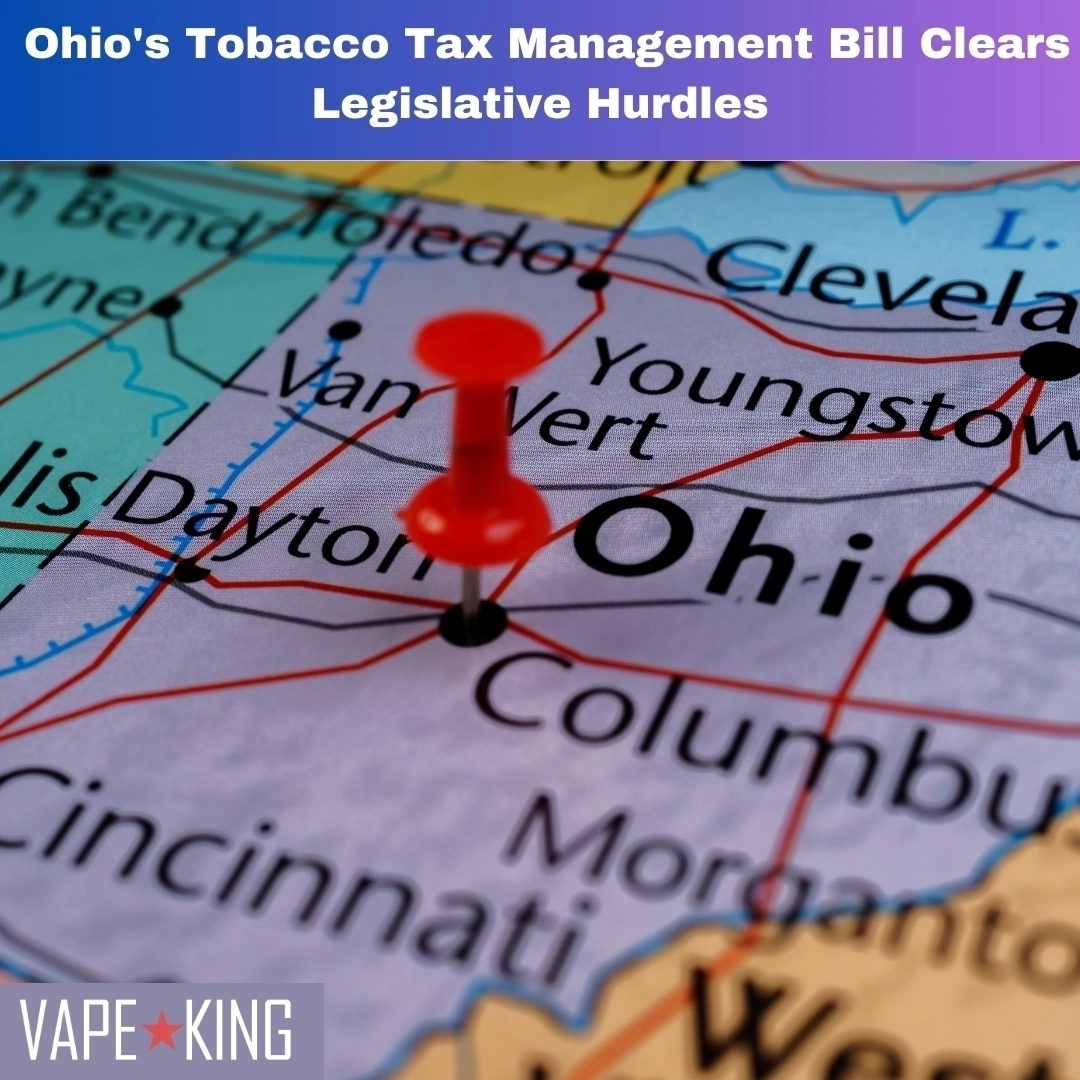Free Shipping on orders R1000 or more!
- Midrand, 21 Kyalami Boulevard, Kyalami Business Park
- 011 466 0201
- Mon-Sun 9.00 - 16.00
- View on map
(Head Office) Monday - Friday: 9AM - 4PM
USA: Ohio's Tobacco Tax Management Bill Clears Legislative Hurdles

HB 513, a recently passed bill, offers a glimmer of hope for vape sellers. Termed as a "tax deduction for cigarette wholesalers when retailers fail to pay," this legislation might be a rare instance where vapers find themselves somewhat content with the law.
A SUMMARY OF THE BILL:
Primarily focusing on tax matters and addressing outstanding debts from uncollected tobacco taxes, HB 513 particularly tackles the tax regime surrounding e-liquids in Ohio. With a relatively high tax rate of 10 cents (ZAR 1.88) per milliliter of juice, the accumulating tax burden incentivizes seeking alternatives to comply with tax obligations. However, confusion arises regarding the party responsible for remitting these substantial taxes, especially during wholesale transactions to retailers.
While the bill largely addresses tax handling, it's not the tax aspect that raises concerns among vapers. Rather, it's a component of HB 513 that Ohio Capital Journal describes as "A late amendment tacked on prohibitions for local tobacco regulations." The pertinent segments of the bill are outlined as follows:
"No political subdivision may enact, adopt, renew, maintain, enforce, or continue in existence any charter provision, ordinance, resolution, rule, or other measure that conflicts with or preempts any policy of the state regarding the regulation of tobacco products or alternative nicotine products."
WHAT COMES NEXT?
Dubbed a preemption bill, HB 513 effectively prevents regulations that exceed state tobacco laws from taking precedence. Presently, two major cities are poised to clash with this bill due to their existing laws. As HB 513 supersedes local ordinances with state regulations, it nullifies bans previously enacted by certain cities.
Columbus, for instance, had implemented a prohibition on all flavored tobacco products, a measure stricter than the FDA's permitted products. Scheduled to commence in January 2024, Columbus's ban may now be rendered ineffective following the passage of HB 513. Similarly, Toledo's ban on flavored cartridges faces conflict with HB 513.
While the law's enactment and its practical implications may differ, the passage of HB 513 signifies a comparatively positive development in legislation concerning vapers, marking a departure from the norm.
References:
No posts found
Write a review- Store Locator
- Vape Shop Near Me
- Vape King Head Office (JHB)
- Vape King Amanzimtoti (KZN)
- Vape King Atterbury (PTA)
- Vape King Ballito (KZN)
- Vape King Bel Air (JHB)
- Vape King Benoni (JHB)
- Vape King Boksburg (JHB)
- Vape King Bracken City (JHB)
- Vape King Centurion Megastore (PTA)
- Vape King Craighall Megastore (JHB)
- Vape King Dainfern (JHB)
- Vape King Elarduspark (PTA)
- Vape King Fourways Megastore (JHB)
- Vape King Greenstone (JHB)
- Vape King Honeydew (JHB)
- Vape King Illovo (JHB)
- Vape King Kempton Park (JHB)
- Vape King Kyalami (JHB)
- Vape King Montana (PTA)
- Vape King Northcliff (JHB)
- Vape King Queenswood (PTA)
- Vape King Randpark Ridge (JHB)
- Vape King Randhart (JHB)
- Vape King South Coast (KZN)
- Vape King Umhlanga (KZN)
- 21 Kyalami Boulevard, Kyalami Business Park, Midrand
- 011 466 0201
- Mon - Fri: 9.00 - 16.00
- View on map


© 2013 - 2026 Vape King. www.vapeking.co.za
